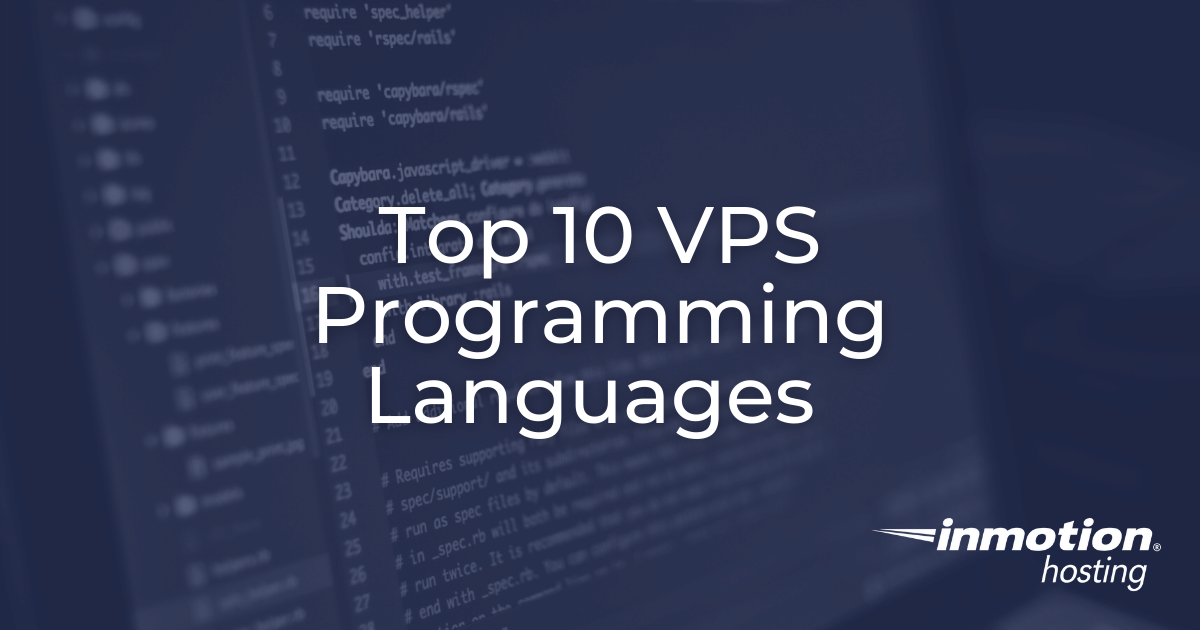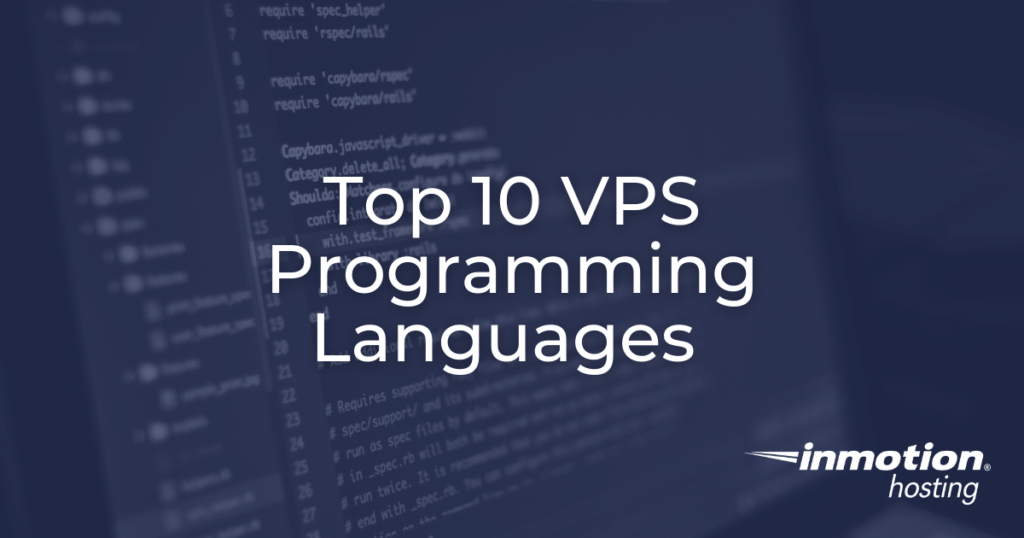

Modern VPS platforms allow for users to leverage popular programming languages to perform a wide variety of tasks. Applications can be written in languages such as Javascript, and websites can be written in languages such as HTML, CSS, and PHP. In this article we will discuss ten of the most popular VPS programming languages.
Topics Include:
Programming Language vs Scripting Language
While the term programming language is used to describe languages such as PHP and HTML, these are actually scripting languages, which differ from programming languages such as C++. Scripting languages are frequently used to automate program tasks and parse data sets whereas programming languages are used to write computer programs.
Think of programming languages as instructions, telling the computer what to do when a certain program is run. Scripting languages can be thought of as helpers, assisting the program in carrying out certain tasks. For example, a program designed to analyze sets of raw data may use scripting languages to parse out relevant pieces of information from the rest of the data set.
In addition to programming languages and scripting languages, there are additional language types such as markup and style sheet languages that serve auxiliary functions in computer programming, such as telling the website what text to display and where to display it. While we briefly touch on these languages below, the majority of the examples given here are either scripting languages and programming languages.
For the purposes of this article, we will be using the term programming language to describe both programming and scripting languages. While these terms are generally used interchangeably, it is important to know the difference.
Top Programming Languages for VPS
Due to the level of control VPS users have over their own servers, users can perform far more complex operations using custom coded solutions. Shared servers generally have limited toolsets and only support a few select languages to perform tasks. VPS platforms, by contrast, give you all of the tools you need to set up your server to work with most of the popular programming languages in use today.
To help keep track of the various languages we are about to discuss, we will break them down into three general categories based on what the languages are frequently used for:
Websites
A number of different languages are used to develop websites and web-based applications:
Javascript – One of the core technologies of the modern internet, Javascript is commonly used to manage the behavior of web pages as they appear in browsers. Some examples of Javascript-based programming are web page animations, pop-up ads, and media streaming. Most of the features you use on websites regularly are written in some combination of Javascript, CSS, and HTML.
HTML – Another core technology, HTML is short for Hypertext Markup Language and it is used to generate text and formatting for web pages. Whenever you go to a website and see text, you are seeing HTML.
CSS – As a style sheet language, CSS provides style to the text you see on a web page. Using CSS, text color, font, and more can be changed. If you see a web page with fancy font and flashy colors, chances are they have custom CSS in place. Combined with HTML, CSS can be used to dictate the spacing between page elements as well as the size of the page elements themselves.
Services
There are two main languages used to manage services such as SSH connections, depending on what type of operating system your server is running.
Bash – This language is used to manage command-line and login services for Linux-based servers. Through bash, users can securely connect to their server from a remote location and execute an array of different commands. It is a crucial service for any VPS administrator or back-end developer.
Windows Powershell – This language is the Microsoft counterpart to Linux’s bash. Just as bash provides a secure remote connection to a server, PowerShell allows Windows users to connect to a remote server.
General Purpose
General purpose programming languages aren’t specifically designed for any single task or domain, in contrast to languages that are designed for scientific or commercial purposes. Here are a few examples of the most popular general-purpose VPS programming languages .
Java – One of the most popular VPS programming languages in the world, Java was designed with an emphasis on portability. This means that applications written in Java can be moved to any other platform that supports Java without needing to recompile the source code for the application. Put simply, Java applications can be moved seamlessly without needing to rebuild the program from the original source code. Java is also the development of applications such as those used on Android mobile devices.
Perl – Another popular VPS programming language, Perl is commonly used for system administration and network management. One popular example of an application that uses this language extensively is cPanel.
Python – A highly-popular general purpose VPS programming language, Python emphasizes code readability. This readability combined with the fact that it is pre-installed on most modern computers makes it an easy language to learn for beginners. It is used in a wide-variety of applications, particularly in the context of information security.
C++ – This general purpose VPS programming language was designed with an emphasis on performance and usability, and it is used in a wide-variety of applications. Some examples of uses for C++ include desktop applications such as video games as well as more critical applications such as satellites and aerospace equipment.
PHP – This general purpose scripting language was designed with an emphasis on web development. It is frequently used for Content Management Systems such as WordPress and Joomla!
Now that we’ve reviewed the top ten most popular VPS programming languages, you can better navigate the various options that are available to you. Whether you need to build a website, parse through raw data, or set up an application, one of the aforementioned programming languages will help you get it done.
Learn more from our Managed VPS Hosting Product Guide.
Related
[ad_2]
Source link






